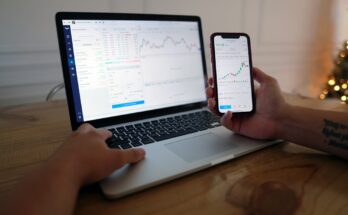Trading platforms have revolutionized the way investors buy and sell securities, providing a convenient, efficient, and cost-effective way to access financial markets. With the rise of online trading, trading platforms have become an essential tool for investors, offering a range of features and benefits that cater to different investment needs and strategies. In this article, we will provide a comprehensive guide to trading platforms, including their features, benefits, and types.

Features of Trading Platforms
1. _User-Friendly Interface_: Trading platforms offer a user-friendly interface that allows investors to easily navigate and execute trades.
2. _Real-Time Market Data_: Trading platforms provide real-time market data, including stock prices, charts, and news.
3. _Trade Execution_: Trading platforms enable investors to execute trades quickly and efficiently, with options for market orders, limit orders, and stop-loss orders.
4. _Portfolio Management_: Trading platforms offer portfolio management tools, including account balances, transaction history, and performance tracking.
5. _Research and Analysis_: Trading platforms provide research and analysis tools, including charts, technical indicators, and fundamental data.
6. _Mobile Trading_: Many trading platforms offer mobile trading apps, allowing investors to trade on the go.
7. _Customer Support_: Trading platforms offer customer support, including phone, email, and live chat support.
Benefits of Trading Platforms
1. _Convenience_: Trading platforms offer convenience, allowing investors to trade from anywhere with an internet connection.
2. _Cost-Effective_: Trading platforms are cost-effective, offering lower fees and commissions compared to traditional brokerage firms.
3. _Increased Accessibility_: Trading platforms have increased accessibility to financial markets, allowing investors to trade a wide range of securities, including stocks, options, futures, and forex.
4. _Improved Efficiency_: Trading platforms have improved efficiency, allowing investors to execute trades quickly and efficiently.
5. _Enhanced Research and Analysis_: Trading platforms offer enhanced research and analysis tools, helping investors make informed investment decisions.
_Types of Trading Platforms_
1. _Proprietary Trading Platforms_: Proprietary trading platforms are developed and owned by brokerage firms, offering a customized trading experience.
2. _Third-Party Trading Platforms_: Third-party trading platforms are developed by independent software companies, offering a range of features and benefits.
3. _Social Trading Platforms_: Social trading platforms allow investors to follow and copy the trades of other investors, offering a social and collaborative trading experience.
4. _Mobile Trading Platforms_: Mobile trading platforms are designed for mobile devices, offering a convenient and accessible trading experience.
5. _Algorithmic Trading Platforms_: Algorithmic trading platforms allow investors to automate their trading strategies using algorithms and programming languages.
Popular Trading Platforms
1. _Robinhood_: A popular mobile trading platform offering commission-free trading and a simple, user-friendly interface.
2. _Fidelity_: A well-established online brokerage firm offering a range of trading platforms, including Active Trader Pro and Wealth-Lab Pro.
3. _TD Ameritrade_: A leading online brokerage firm offering a range of trading platforms, including Thinkorswim and TradeStation.
4. _E*TRADE_: A popular online brokerage firm offering a range of trading platforms, including E*TRADE Pro and OptionsHouse.
5. _Interactive Brokers_: A global online brokerage firm offering a range of trading platforms, including Trader Workstation and IBKR Mobile.
_Conclusion_
Trading platforms have revolutionized the way investors buy and sell securities, offering a convenient, efficient, and cost-effective way to access financial markets. By understanding the features, benefits, and types of trading platforms, investors can make informed decisions and choose the best trading platform for their needs. Remember to always research and compare different trading platforms, considering factors such as fees, commissions, and customer support.
Resources:
1. _Investopedia_: A comprehensive online resource for investing and personal finance education.
2. _Securities and Exchange Commission (SEC)_: A government agency providing information and resources for investors.
3. _Financial Industry Regulatory Authority (FINRA)_: A self-regulatory organization providing information and resources for investors.
4. _The Financial Planning Association (FPA)_: A professional organization providing resources and support for financial planners and investors.

Other stories
-
Brokerage Services: A Comprehensive Guide to Buying and Selling Securities
-
Investment Advice: A Comprehensive Guide to Making Informed Investment Decisions
-
Portfolio Management: A Comprehensive Guide to Managing Your Investments
-
Exchange-Traded Funds (ETFs): A Comprehensive Guide
-
Business Interruption Insurance: Protecting Your Business from Unexpected Disruptions




Good information